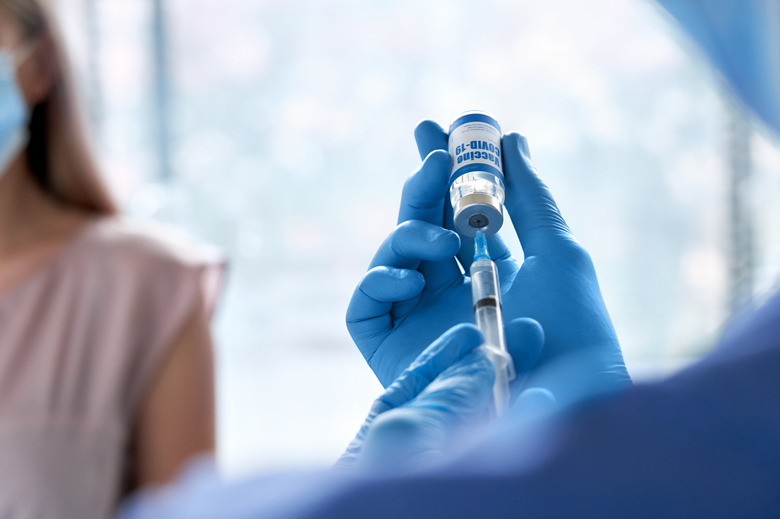This Is The Most Dangerous Thing About Coronavirus Vaccines
- People who receive a COVID vaccine from Pfizer or Moderna still need a few weeks to build up immunity.
- People who immediately ease up on coronavirus safety guidelines after getting vaccinated put themselves and others at risk.
- Another reason to maintain COVID safety rules post-vaccination is that it's unclear if vaccinated individuals can still transmit the virus to others.
When Pfizer back in November announced that its coronavirus vaccine was 95% effective at preventing a COVID-19 infection, health experts were blown away. The 95% figure not only stunned medical professionals but even surprised Pfizer executives who, while hoping for positive results from Phase 3 clinical trials, didn't imagine they'd see an efficacy rate of 95%.
A few weeks after Pfizer made its research results public, Moderna announced that its own COVID-19 vaccine was 95% effective at preventing a COVID-19 infection as well. It is, however, incredibly important to stress that receiving a COVID vaccine should in no way be viewed as a license to take coronavirus safety guidelines less seriously.
For starters, COVID vaccines don't build up immunity to the virus right away. Rather, the process still takes a few weeks after receiving the second dose.
The CDC notes:
It typically takes a few weeks for the body to produce T-lymphocytes and B-lymphocytes after vaccination. Therefore, it is possible that a person could be infected with the virus that causes COVID-19 just before or just after vaccination and then get sick because the vaccine did not have enough time to provide protection.
Put differently, someone who received a COVID-19 vaccine can still contract the virus if proper safety measures aren't followed.
Second, health experts at this point are unsure if someone vaccinated against COVID-19 can still transmit the virus to others. That said, the most dangerous thing about coronavirus vaccines is that they may give people a false sense of security and, in turn, prompt them to take COVID safety measures less seriously.
To this point, The Independent reports that Dr. David Halpren warned members of the British Parliament that too many people are viewing the COVID vaccine as an immediate cure-all and excuse to resume normal day-to-day activities.
We definitely do worry that people feel that, the second they have got that vaccination, they are good to go," the Sage adviser told MPs.
"People are going to be over-confident, too fast on the vaccine," Dr Halpern added.
The warning came as Sage is urging ministers to begin a public awareness campaign to stress the need to follow restrictions, after the number of people vaccinated topped 4 million.
Asked, by the Commons public administration committee, if he feared people will "let their guard down", Dr Halpern replied: "Absolutely right on that."
In light of the above, it's crucial for people who have been vaccinated to still follow standard coronavirus safety guidelines. This means that people should avoid indoor gatherings, socially distance when in public, and continue to wear masks.
